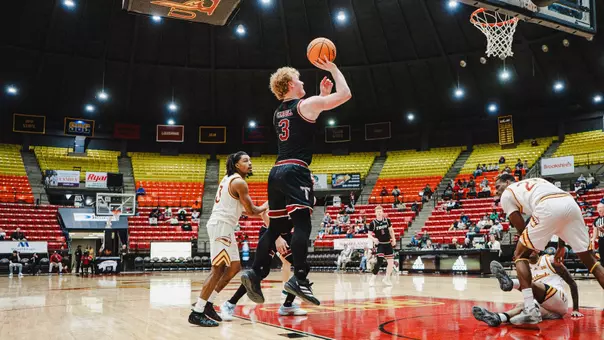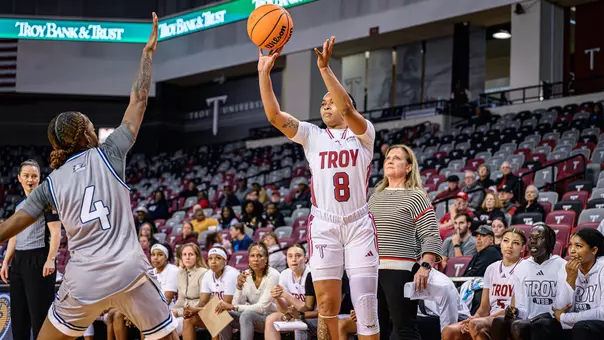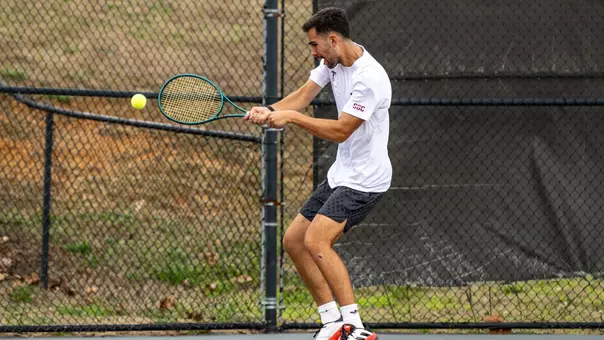Troy University Athletics
Hall of Fame

- Induction:
- 2015
It was the summer of ’69, when Doc was told about a runner from Columbus, Ga. “Pete Jenkins, a football coach, told me there was a runner over at Baker High that I needed to check out,” Anderson said. “So I went over there to talk to the track coach, Sam Roberts, who had previously coached at San Jose State with Bud Winter.”
In high school, Batie finished just one-tenth of a second off the world record in the 50-yard dash, a record he would later tie as a freshman at Troy.
“So, what made him unique was, this was a guy you could tell right off the bat was going to be a really good runner,” Anderson said.
Batie, a five-time NCAA & NAIA All-American, ran for the Trojans from 1970-73.
“In the spring of 1970 we went down to Florida and he won the 100-yard dash, upsettting the guy from Southern Illinois,” Anderson recalls. “He was the first real-deal guy that we had, and the rest was history.”
Batie went on to be rated as the sixth-fastest runner in the nation by Runner World. He held the Troy record in the 50, 60, 100 and 200-yard dashes, in addition to being on three different school record setting relay teams. As a freshman, Batie tied the world record in the 50-yard dash with a time of 5.1 seconds. He also led the Trojans to Alabama Collegiate Conference and NAIA District 27 championships.
“His work ethic was good,” Anderson said. “He wasn’t a guy that was a ‘yeah, yeah’ guy. He went about everything quietly and got it done. He was very coachable, but with that said, I owe all of that to Sam Roberts, his high school track coach. He came out of Baker very advanced.
In addition to tying a world record during his freshman campaign, Batie also finished second in both the 100-yard dash and the 60-yard dash at the NAIA National Meet.
His illustrious career allowed him to be Troy’s first Division I All-American. Anderson adds, “In track, you are not selected - you earn it, and he did. He upset the guy from Michigan in Detroit at the NCAA Indoor meet. Back then, if you qualified and were a member of the NCAA, you could go to the NCAA indoor meet, and that’s how he did it, several times.”
Anderson says simply put, Batie lit it up on the track. “He really is the reason today we really have a track program. He lit it up. In the spring of 1970, we won a conference championship we weren’t supposed to and from then on, it was championships after championships. He would and could still be competitive today.”
Anderson and Batie still hold a close relationship, as Anderson says Batie was just in his office a few days ago, catching up. “I know he is so excited about (being inducted into the hall of fame).”
After all of the memories made between coach Anderson and Batie, Anderson makes it a point to say, “One last bit of information about Baite, he never had a single false start in his entire time here.”
Batie, a member on the US Olympic Training team, is now retired after working in the state prison system, and lives in Troy.














